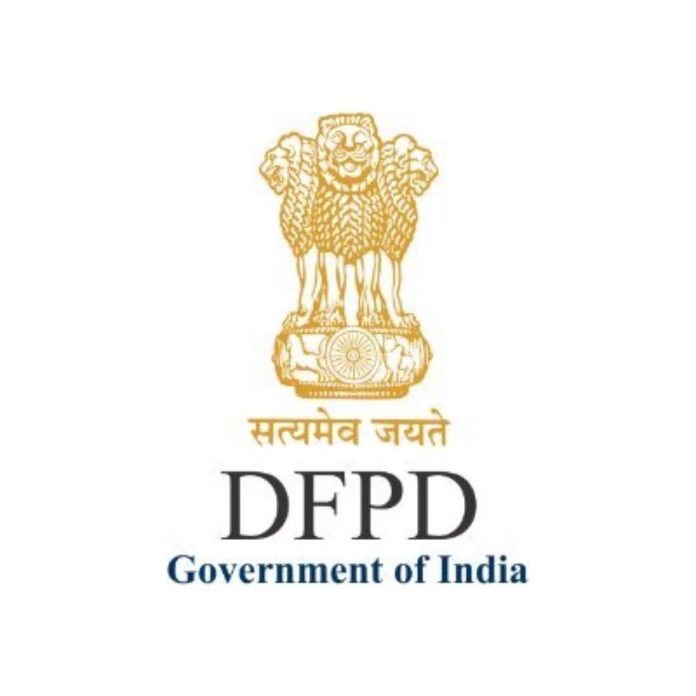The Department of Food and Public Distribution (DFPD) has worked on four major pillars during the first 100 days of this government. The four pillars are as follows: i) Digitalization of DFPD operations, ii) Modernizing storage and streamlining logistics in PDS, iii) Transforming Fair Price Shops into Jan Poshan Kendras and iv) Institutional strengthening of organizations under DFPD.
In the last 100 days, the DFPD has already made major strides in achieving the targets on all the above pillars. A few key achievements and the way forward are detailed below:
Launch of Jan Poshan Kendras: DFPD launched a pilot program to transform 60 Fair Price Shops (FPSs) as Jan Poshan Kendra (JPK) on August 20, 2024. These JPKs offer non-PDS commodities with particular focus on nutrition-dense commodities at prices that are competitive with those in the open market. The pilot is envisaged to bridge the nutritional gaps among beneficiaries while providing additional revenue streams to the FPS dealers. The FPS dealers have already been trained as Poshan Mitras, to provide guidance on nutritional literacy to beneficiaries. The pilot was launched in Ghaziabad (UP), Jaipur (RJ), Ahmedabad (GJ) and Hyderabad (Telangana). Over the next five years, 50,000 FPSs are planned to be converted to JPKs across the country.
Mera Ration 2.0 Application: To provide real-time information to PMGKAY beneficiaries on their entitlements, withdrawals, nearest FPS, and a suite of newer value-added features for seamless and user-centric experience, DFPD launched the Mera Ration 2.0 application on 20 August 2024. DFPD officials on their part will also have access to vital information related to ration cards and PDS. More than 1 crore downloads have already been recorded.
Route optimization using PM Gati Shakti: Route Optimization study of PDS supply chain is being undertaken to reduce the distance. This study ensures the optimum utilization of existing infrastructure of godowns & FPSs. Due to this exercise, a consolidated annual saving to the tune of Rs. 112 crores have been reported by 13 States. It will help in reduction of carbon emissions as well. Going forward, Intra state route optimization tool has been integrated with PM Gati Shakti Distance API for shortest motorable routes between FCI godown to state godown and further between states’ godown to FPS. New distance between godown to godown & FPS is being generated through Gati Shakti API.
Quality Management System (QMS): A QMS portal by integrating Quality Control Labs in DFPD & Food Corporation of India (FCI) has been developed to monitor various lab activities on real time basis. The real-time updation of lab test results will ensure the traceability of the entire process from sample collection to result declaration. The QMS was launched by the DFPD on 20 August 2024.
Development of silos and bulk movement of foodgrains:
Silos harness the efficiency of railway siding, promote cost efficiency through bulk storage & movement & reduces cost. As of now, Silos of total 21.75 LMT capacity are functional and 7.5 LMT are under construction. A capacity of 3 LMT at 6 locations has been completed during the 100 days. DFPD has planned to develop a capacity of 111.125 LMT under Hub and Spoke Model, out of which tenders have been awarded for construction of 34.8 LMT capacity in phase-I. Department is in process to make arrangements for movement of foodgrain in bulk through specialized wagons with top loading & bottom discharge which will harness the optimum benefits of Silos by reducing the logistics cost.
Credit Guarantee Scheme: A credit guarantee scheme (CGS-NPF) has been approved to instil confidence among the lenders to extend pledge finance against electronic Negotiable Warehouse Receipts (e-NWRs) to farmers and traders on the produce stored in WDRA registered warehouses. This scheme covers lending risk as well as warehousemen risk and is expected to improve trust on warehousemen to increase post harvest finance through e-NWRs. This scheme is expected to increase the pledge finance from the current level of Rs. 3,962 crores to Rs. 1,05,000 crores during next 10 years.
Development of Subsidy Claim Application for NFSA (SCAN 2.0) portal: To provide for a single window for submission of subsidy claims by states, claim scrutiny and approval by DFPD and to expedite the settlement process, the DFPD has developed the SCAN 2.0 portal. This portal will ensure end-to-end workflow automation of all the processes for release and settlement of food subsidy using rule-based processing.
Record procurement of Shree Anna: Government of India promotes procurement of coarse grains/Millets (Shree Anna) to improve nutritional security to the beneficiaries by way of its distribution under Targeted Public Distribution and Other Welfare Schemes. The total coarse grain procurement carried out during KMS 2023-24 is 12.49 LMT, which is 170% more as compared to KMS 2022-23. This is the highest coarse grains procurement in last 10 years.
A quantity of 19.03 LMT of coarse grains/Millets (Shree Anna) has also been estimated for procurement by the States during the KMS 2024-25(Kharif crop).
Increase in Ethanol production capacity to achieve the EBP targets: The ethanol production capacity has expanded significantly, reaching 1,623 crore litres. Thus, the 100 days target of increasing total capacity to 1,600 crore litres has been achieved.
In the current Ethanol Supply Year (ESY) 2023-24 (November-October), 13.59% ethanol blending has been achieved, with approximately 545.05 crore litres of ethanol blended as of August 31, 2024.
Modern Video Surveillance System: DFPD has taken initiative to install Modern Video Surveillance System in FCI Depots in order to bring more transparency. Aim of this is to have an integrated system which will lead to an increased standard of surveillance, oversight in warehouse management practices, greater levels of collaboration (particularly amongst various line departments), innovation in monitoring models, scalable solutions, and a more secure basis for the FCI to manage their supply chain.
Overall, the DFPD has made significant progress in achieving its targets within the first 100 days. These initiatives are expected to improve food security, enhance the efficiency of PDS operations, and empower beneficiaries.
(Source: PIB)










